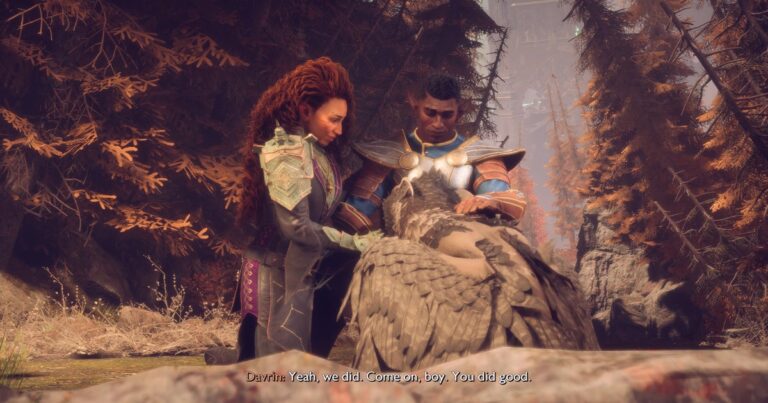Summerfall Studios co-founder and former Dragon Age author David Gaider has been reflecting, not for the first time, on his profession at BioWare underneath EA. In a brisk recap of a decade-and-change of sequels, adjustments of path, and mid-project reboots, he sums up EA’s problem with Dragon Age as mainly considered one of having no actual religion within the extensive enchantment of role-playing games.
“In some ways, Dragon Age was, I feel, not a very good match for EA,” Gaider defined, in a brand new interview with PCGamesN. “They by no means actually knew what to make of it, or what to do with it. The expectation was all the time that it would not do effectively, and when it did do effectively, it took individuals unexpectedly.”
EA have been much more satisfied by sci-fi stablemate Mass Effect, Gaider went on, regardless of Mass Impact sporadically falling wanting expectations. “By comparability, Mass Impact was slick and it was action-driven and really a lot up EA’s alley, in order that they all the time anticipated that it ought to do higher, and each time it did not, it acquired excuses like ‘oh they launched within the flawed timeframe, or X, Y, and Z.’
“The concept was that the potential for Mass Impact was extra – it may get the motion viewers in addition to the RPG viewers,” he mentioned. “It wasn’t till Mass Effect 3 that they began to understand that ‘no, there’s an motion RPG viewers, like a crossover,’ however you do not simply get each audiences collectively.”
Final 12 months’s Dragon Age: The Veilguard actually suggests a stage of hesitancy in regards to the worth of Dragon Age as a ‘pure’ role-playing recreation. Its improvement was, by most accounts, hellish: initially pitched as one other narrative-led RPG, The Veilguard was re-envisaged as a dwell service multiplayer providing, as was the style at the time, then rebooted as a single participant action-RPG in gentle of Anthem’s business failure.
Gaider – who left BioWare after engaged on Dragon Age: Inquisition, my beloved – has but to play The Veilguard, having poured a lot of himself into Dragon Age that he feels uneasy about it evolving with out him. He is additionally cautious of judging its creators, lots of whom have been laid off or relocated after EA declared The Veilguard a disappointment. However he does regard the sport as symptomatic of EA’s on-going distrust towards Dragon Age and role-playing.
“Though Dragon Age solely catered to the RPG viewers – at the least initially – [EA] saved wanting it to maneuver into the motion area as effectively – and perhaps by Veilguard it has,” he went on. “I feel their concept was that the ‘cap’ on the RPG viewers was solely so massive. Then Baldur’s Gate 3 comes alongside and proves no, it is doable that in case you lean into what a style does rather well, you may develop the viewers, because it seems.”
Gaider would have preferred EA and BioWare to equally “double down on the choice-driven narrative, double down on the manufacturing worth, just like the presentation of the characters and the cinematics and dialogs, and simply take it to the extent the place high quality is the watchword.” However as he concludes, it is laborious to think about a publicly traded firm like EA doing what Larian did with BG3, as a result of the 2 “dwell on two totally different planets”.
It isn’t clear what the long run holds for Dragon Age. Or certainly BioWare, who’ve been stripped all the way down to a core staff at present engaged on Mass Effect 5.

